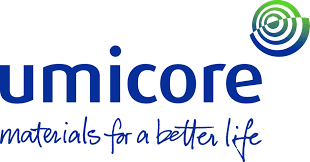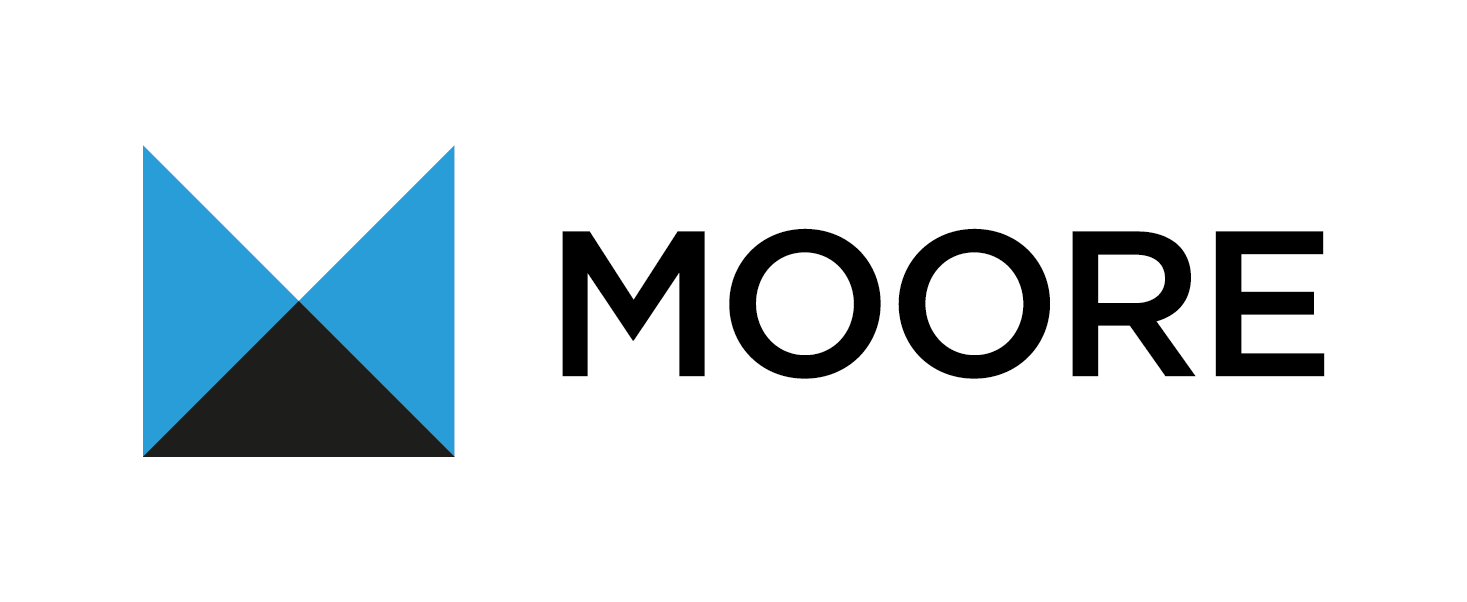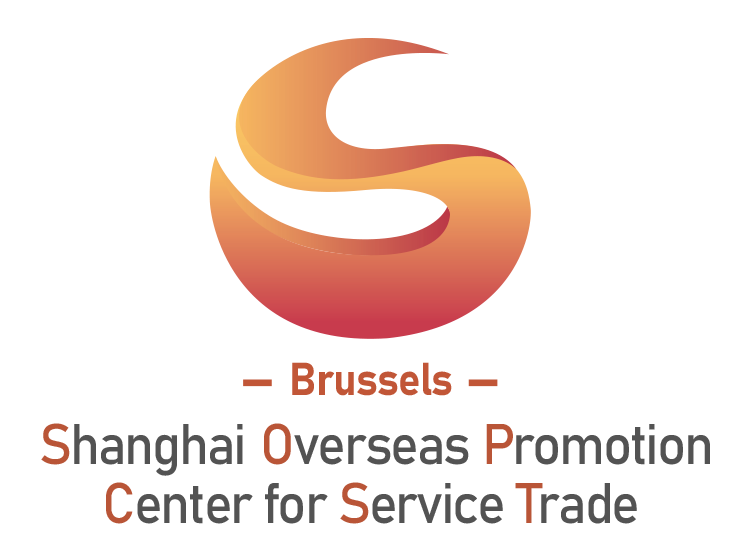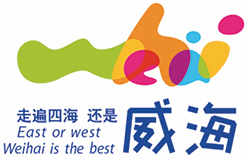Promising season expected for smartphone makers
Apr-13-2021 By : fcccadmin
Chinese smartphone makers are anticipating that the new season will help the industry to recover the ground it lost due to the Covid-19 epidemic fallout. Companies are vying with each other to unveil the latest cutting-edge premium handsets after a new report showed that smartphone shipments in China rose by 236.6% on a yearly basis in February, when more than 21.3 million smartphones were shipped, according to the China Academy of Information and Communications Technology, a Beijing-based government think tank. That is in sharp contrast to February 2020 when almost all smartphone shops struggled to keep their doors open during the Covid-19 pandemic.
In March, dozens of smartphone launch events were held. Vivo alone held three events to release three new phone series and rival Realme also held two. Vivo and another smartphone maker Meizu both unveiled their new 5G phones on March 3. Realme and Nubia both held launches on March 4. In the second half of March, the battle was even fiercer. From March 22 to 25, device makers Honor, Oppo and Vivo unveiled their new 5G smartphones one after another. Four days later, on March 29, Xiaomi unveiled its latest flagship models. Such a frenzied smartphone release schedule has not been seen in recent years as the global smartphone market hit a saturation point and people refrained from upgrading their handsets, said Fu Liang, an independent telecom expert who has been following the industry for more than a decade.
Such a revival signals that the spring battle for 5G smartphone market supremacy in China is ongoing, especially in the high-end segment. This comes while Huawei, the former longtime champion of the local market, suffered the impact of U.S. sanctions. Sensing the opportunity left by Huawei in the USD600-and-above premium segment, local smartphone makers are all beefing up resources to show consumers their advances in product design, research and development (R&D), as well as ambitions in expanding retail channels.
Liu Zuohu, Founder and CEO of OnePlus, a Chinese smartphone vendor known for its dedication to design, said the company will spare no efforts this year to expand its presence in the high-end segment. “We will invest CNY1 billion over the next three years to continuously seek breakthroughs in color and professional experience to create the ultimate mobile imaging experience,” Liu said. The company announced a partnership with Swedish firm Hasselblad in March to develop better smartphone cameras. Such a commitment is already reflected in the latest OnePlus 9 series, unveiled on March 24, featuring cameras that Hasselblad helped develop. OnePlus said it will ramp up efforts to expand its presence in the offline retail channels, with more than 1,000 employees now working in this area.
Rival Oppo became the top smartphone brand in China for the first time in January, with a market share of 21%, said Counterpoint Research. Liu Bo, President of Oppo China, said the company aims to be one of the three major players that dominate the USD600-and-above market in the future. The other two players are Apple and Samsung Electronics. In March, Oppo also unveiled its latest premium smartphone series the Find X3. The smartphone model is expected to be Oppo’s biggest-ever push to grow its share in the premium smartphone segment. Varun Mishra, Senior Analyst at Counterpoint Research said: “Oppo has been successfully able to reposition its product lines in 2020. The rebranding of the Reno series and launching a more capable device at a lower price point than its predecessor helped Oppo capture the affordable premium segment.”
Meanwhile Honor – a brand that gained independence from Huawei in November – is trying to regain lost market share. Zhao Ming, CEO of Honor, said the company plans to be among the world’s top 500 companies as it expands in the high-end smartphone segment and opens more offline retail stores. Honor aims to reach an annual revenue exceeding CNY100 billion soon, Zhao said. On March 23, Honor unveiled its latest 5G smartphone – the Honor V40 Lite Luxury Edition – featuring slim design and fast charging technologies.
Jian Qin, Deputy General Manager of China Mobile, the world’s largest telecom operator by mobile subscribers, said: “This year will see explosive growth of 5G smartphones. We forecast that over 350 million smartphones will be sold in China and 280 million of them will be 5G handsets. We think nearly 300 million users on our telecom network may upgrade to 5G,” the China Daily reports.
Huawei starts charging royalties for use of its patented 5G technology
Mar-23-2021 By : fcccadmin
Huawei will start charging royalties to 5G smartphone makers using its patented 5G technology, which will provide a “reasonable percentage royalty rate” of the handset’s selling price, with a per unit royalty cap at USD2.50. Amid declines in its other businesses due to U.S. sanctions, the firm said the revenue from the intellectual property rights (IPR) will not become its main source of income, as income from terminal products and services will still be its main focus area to generate profits. Jason Ding, Director of Huawei’s IPR Department, made the announcement when releasing a new white paper on innovation and IPR. Huawei is estimated to receive about USD1.2 billion to USD1.3 billion in revenue from patent licensing in the period 2019 to 2021, Ding said. Huawei Chief Legal Officer Song Liuping also said that Huawei will negotiate 5G patent royalties with firms including Apple and Samsung. Huawei’s intellectual property deployment plan is a global one, and it does not distinguish among countries, Song said. “The charge is just another normal approach as Huawei is now the largest 5G patent holder,” Jiang Junmu, Chief Writer at Chinese telecom industry news website c114.com.cn, told the Global Times.
Huawei has 3,007 declared 5G patent families, the most of any company in the world, according to intellectual property research organization GreyB. Qualcomm, Ericsson, Nokia, Samsung and other major patent holders have also benefited from patent authorizations and charged royalties. Compared with its counterparts, Huawei’s charge is relatively low. During the launch of the white paper, Huawei also reiterated its commitment to innovation amid an intense U.S. crackdown, while also again calling for cooperation and openness amid what it said was “fragmentation” in global standards. The new white paper focuses on Huawei’s history in innovation and IPR management prior to 2010, and includes data and milestones related to its investment and research and development (R&D), that goes back to the 1990s.
Huawei states in the paper that it has become one of the world’s largest patent holders through sustained investment in innovation. By the end of 2020, Huawei held over 100,000 active patents in more than 40,000 patent families worldwide. Huawei filed its first patent application in China in 1995, and its first patent application in the U.S. in 1999. In 2008, the World Intellectual Property Organization (WIPO) listed Huawei as No 1 in terms of the number of patent applications filed under the Patent Cooperation Treaty (PCT) for the first time. In 2019, Huawei ranked No 2 in Europe and No 10 in the U.S. in terms of the number of patents granted. Huawei is also the largest patent holder in China, the Global Times reports. From 2010 to 2019, Huawei spent about USD90 billion on R&D, according to the white paper.
Patent applications by Chinese companies in Europe rose 9.9% to a new high of 13,432 in 2020 despite disruptions caused by the Covid-19 pandemic, according to the European Patent Office’s Patent Index 2020. It was also the highest growth rate among the 10 leading patent-filing countries. U.S. companies filed 4.1% fewer applications in 2020 with a total of 44,293. The number of patent applications made to the EPO in 2020 was marginally fewer than in 2019, slipping by 0.7 percentage points to 180,250. The top three technology fields with the most patent applications from China were digital communications (26.5%), computer technology (11.6%) and electrical machinery, apparatus and energy (9.1%), the China Daily reports.
Smartphone competition to heat up with release of Apple’s iPhone 12 and Huawei’s Mate 40
Oct-20-2020 By : fcccadmin
With the recent release of Apple’s 5G-capable iPhone 12 series and the release on October 22 of Huawei’s Mate 40 series smartphones, competition in the smartphone handset market is heating up in China. Even some die-hard iPhone fans are considering buying the latest Huawei smartphone amid the U.S.-China trade war and U.S. sanctions imposed on Huawei.
“The new iPhones will increase the share of high-end phones in the overall smartphone market,” said Wang Xi, Research Manager of global market consultancy IDC. IDC estimates that about 240 million 5G-enabled smartphones would be shipped this year, with the Chinese market alone accounting for more than 160 million units, or 67.7% of the total. C.K. Lu, Senior Research Director with market consulting firm Gartner, however, said that the iPhone, a latecomer to the 5G technology, still does not pack enough punch to attract Android users. Lu said 5G connectivity has already become the standard configuration for several Chinese mobile phone makers. Apple’s launch comes after companies like Huawei, Samsung, Oppo, Vivo and Xiaomi rolled out their handsets. Data from the China Academy of Information and Communications Technology showed that China’s mobile phone shipments stood at 23.33 million units in September, down 35.6% on a yearly basis. Shipments of 5G mobile phones in China amounted to 108 million units during the first nine months of this year, accounting for 47.7% of the country’s overall smartphone shipments. A total of 359 models were introduced in the market from January to September, of which 167 were 5G models.
Nicole Peng, Vice President of mobility at market research company Canalys, said the iPhone 12 will trigger a new wave of phone replacements for Apple in China before the end of the year and in the first quarter of next year. Canalys expects 50% of Chinese phone owners to be using a 5G device by the end of this year, as telecom carriers and phone brands have made tremendous efforts to push the adoption. “It is expected that by 2021, nearly 60% of the 5G smartphones in China will be cheaper than USD400, while 5G penetration in China will reach 83% in the next 12 months,” said Canalys Analyst Jin Shengtao. Global smartphone shipments decreased by 16% on a yearly basis during the second quarter of this year, according to IDC. Huawei became the biggest smartphone player in the world during the second quarter of the year, a major milestone for Chinese smartphone makers. The Chinese vendor shipped 55.8 million devices worldwide, accounting for 20% of the market share in the second quarter, while Apple shipped 37.6 million iPhones between April and June, which placed the company third with a 13.5% market share, the China Daily reports.
China has cemented its position as a global leader in 5G wireless technology and is expected to account for 70% of global 5G connections this year, according to the Global System for Mobile Communications Association. Zhao Dachun, Deputy General Manager of China Mobile, said that the firm had completed its annual construction target ahead of schedule by putting into service over 350,000 5G base stations, while Fan Yunjun, Deputy General Manager of China Unicom, said his company had joined hands with China Telecom to put into service 330,000 5G base stations. The total number of 5G base stations in China has already reached 680,000, slightly ahead of the 630,000 annual target announced by the three major telecom operators at the beginning of the year. “The country has attached unprecedented importance to the development of the digital economy, including 5G, in face of global economic uncertainties and the Covid-19 pandemic. The new 5G infrastructure will further boost the enthusiasm for 5G and increase its use in all walks of life,” said Zhao from China Mobile. A report by the China Academy of Information and Communications Technology pointed out that China’s investment in 5G will be over CNY900 billion this year. Total investments on 5G technologies will reach CNY1.5 trillion in the next five years and help create more than 3.5 million jobs. By 2030, 5G will help create a total economic output of CNY6.3 trillion, the China Daily reports.
One of China’s major smartphone makers – Xiaomi – is building a next-generation, completely unmanned automated factory that can make over 10 million smartphones every year. Lei Jun, Founder and CEO of the fourth-largest smartphone maker in the world, told China Daily that the target was set after Xiaomi’s first smart factory completed six months of operations in Yizhuang, an economic and technological development area in Beijing. Spread over an area of 18,600 square meters, the facility has an autonomous production line that can make 1 million smartphones a year. Xiaomi has been investing heavily on research and development of core frontier technologies. The Beijing-based company ended 2019 relatively well with a 27.1% growth in fourth-quarter revenue. Sales rose to CNY56.5 billion from CNY44.42 billion in the same quarter a year earlier.
China launches battle for IC independence
Oct-06-2020 By : fcccadmin
The Chinese government is going all out to achieve a breakthrough in semiconductor manufacturing as the nation faces U.S. sanctions on hi-tech goods. Over the past year, President Xi Jinping has on multiple occasions described China’s reliance on imported technology as “being strangled by an adversary”. China often boasts of having the world’s most extensive industrial value chain and is known as the global leader in assembling mobile handsets, but the country relies on foreign chips, most notably from the United States, the South China Morning Post reports.
China has spent more than about USD300 billion annually on imported chips over the past two years. But a rapidly deteriorating relationship with the U.S. is making it increasingly hard for Chinese technology companies to acquire components used in its devices. U.S. sanctions on companies like ZTE and Huawei have severely dented production, effectively cutting these companies off from American-made components without a special U.S. government waiver.
As it becomes increasingly clear that easy access to chips and the equipment used to make them is vanishing, China is doubling down on support for its domestic semiconductor industry. In late July, Beijing introduced a 10-year corporate tax break for established companies that could produce chips of 28 nanometers or smaller. It also expanded tax incentives for the entire semiconductor supply chain, from design to packaging. The semiconductor industry is set to become one of the most prominent features in China’s five-year plan for the period 2021-25. A new investment fever has emerged in the chip industry as Beijing rolls out preferential policies and cheap loans for projects. “There used to be difficulties for the semiconductor industry to obtain enough financing, but now it is a hotter area than property investment,” said Chang Junfeng, Secretary General of the Shenzhen Semiconductor Industry Association. Across the country, it is hard to find a province or major city that has not targeted semiconductor manufacturing as a key industry. China’s total investment in the chip industry, from both state and private sectors, could reach CNY9.5 trillion in the next five years, according to Guosen Securities. In the first eight months of this year, as many as 9,335 companies in China expanded into semiconductor production, a growth of 120% compared to the same period last year.
According to the South China Morning Post, China’s push to develop the semiconductor industry could signal a tolerance for inefficiency. “The current market is a bit overheated. There is no way for China to counter the U.S. on the chip market except investing more in the industry. A majority of the companies are just speculating, but there is nothing to worry about because that’s the way Chinese companies grow. Most newcomers entering the industry will fail, but China is hoping a handful will survive”, said Sheng Linghai, Analyst at research and advisory firm Gartner. “If none succeed, the whole industry in China will collapse. The central government’s supportive policies for the semiconductor industry will only keep increasing because the country is facing the possibility of being blocked from technology by the U.S.,” he added. Chang Junfeng of the Semiconductor Association said that because the semiconductor value chain was so globalized, no single country – be it the U.S., Japan, or South Korea – could be totally independent.
SMIC’s shares fell 7% on the Shanghai Stock Exchange and 4% on the Hong Kong Stock Exchange after news broke that the U.S. is considering imposing export controls on the company, banning U.S. suppliers from exporting to SMIC without obtaining export licenses from the U.S. government. Seen as a premium production base in China’s drive to be more self-sufficient in semiconductor manufacturing, SMIC’s shares jumped more than 200% on the first day of trading, after its secondary listing in Shanghai in July, lifted by broad enthusiasm among investors. Now investors are worried about SMIC’s future business, although it is unclear whether the sanctions will be as harsh as those imposed on companies on the Entity List. While many international IC manufacturers have been making 5-nanometer microchips for years, SMIC only started its 14 nm production last year. Most of SMIC’s products fall into the range between 28 nm to 90 nm, and chips of 28 nm or smaller accounted for less than 10% of SMIC’s total revenue in the second quarter this year. In the meantime, Taiwan Semiconductor Manufacturing Co (TSMC), the world’s largest contract chipmaker, is planning volume production of 5 nm chips this year, and it will begin manufacturing 3 nm processors around 2022. Samsung, another leading chipmaker, has also started mass production of 5 nm chipsets. China needs to make more effort to achieve independence in electronic design automation (EDA) software used for designing integrated circuits. Most of the best EDA companies are in the U.S., the Global Times reports.
Microsoft in negotiations to buy TikTok from ByteDance
Aug-11-2020 By : fcccadmin
Microsoft said it would continue talks with ByteDance to acquire the U.S. operations of popular video-sharing app TikTok, after a meeting of Microsoft CEO Satya Nadella with President Donald Trump, who already banned the app form being installed and used on smartphones issued by the government. Trump said he would ban TikTok altogether if the sale is not concluded by September 15. If the sale is successful, Microsoft would also operate TikTok in Canada, Australia and New Zealand. “Microsoft fully appreciates the importance of addressing the President’s concerns. It is committed to acquiring TikTok subject to a complete security review and providing proper economic benefits to the United States, including the U.S. Treasury,” Microsoft said in a statement. It has been reported that Twitter is also interested in buying TikTok, although it would need substantial external financing to do so.
The negotiations between ByteDance and Microsoft will be overseen by the Committee on Foreign Investment in the United States (CFIUS), a U.S. government panel that has the authority to block the agreement. TikTok, which boasts 100 million U.S. users, has been a source of national security and censorship concerns for the Trump administration. In its statement, Microsoft said it may invite other American investors to participate on a minority basis in the purchase of TikTok. Financial terms were not disclosed. TikTok’s U.S. user data is stored in the U.S., with strict controls on employee access, and its biggest investors come from the U.S., the company said earlier. ByteDance’s valuation expectations for the app exceeded USD50 billion, although U.S. pressure to divest it could lower that price tag. “While we encounter mounting complexities across the geopolitical landscape and significant external pressure, our response teams have been working around-the-clock and giving up their weekends over the past few weeks to ensure the best possible outcome,” CEO Zhang Yiming said.
ByteDance said it is committed to becoming a global company despite facing “complex and unimaginable difficulties” in going global, including “the tense international political environment, collision and conflict of different cultures and plagiarism and smears from competitor Facebook.” TikTok has attracted criticism from Facebook CEO Mark Zuckerberg, who last year accused the app of censorship. TikTok has denied the claim, the Shanghai Daily reports.
President Trump said the U.S. Treasury should get a “very large percentage” of the sales price because the U.S. government is making the deal possible. China sternly condemned the plan as “political manipulation”. “This goes against the principles of the market economy and the World Trade Organization’s principles of openness, transparency and non-discrimination,” said Foreign Ministry Spokesman Wang Wenbin. “It’s outright bullying.” The national security grounds for the U.S.’s clampdown on Chinese firms “does not hold water,” he added, as the company conducted its business activities in accordance with international rules and U.S. laws. “But the U.S. is cracking down on them on trumped-up charges,” said Wang, who warned the U.S. not to “open Pandora’s box.”
While it followed a sweeping crackdown by the Trump administration on a growing list of Chinese technology companies, the “illegal and immoral” move against TikTok marks an unprecedented step in the legal and commercial arena and sounded a dire warning of how more Chinese businesses could be targeted by a “shameless” U.S. administration ahead of the presidential election, Chinese experts noted. Such a dangerous escalation warrants stern retaliation from the Chinese government, including taking a proportionate, reciprocal countermeasure on U.S. businesses in the Chinese market, to make it clear to the U.S. administration that its reckless behavior won’t go unchecked, the experts urged, adding that without concrete countermeasures, the U.S. President could further step up crackdowns on more Chinese firms and could even pick fights in other geopolitical areas, the Global Times adds.
Following TikTok, President Trump is also planning to ban WeChat, another popular Chinese social messaging app. President Trump issued an executive order to ban any U.S. deal with Tencent, the operator of WeChat, after 45 days, or starting on September 20. Banning WeChat would also have a huge impact on Apple. As one of the largest markets for Apple, some 20% of iPhone sales globally are from China, and taking WeChat off the App Store “would be a serious hindrance,” Anand Srinivasan, Analyst with Bloomberg Intelligence said.
On Chinese social media platforms, many declared the end of the U.S. as a free market and a country ruled by the law, calling the move “naked robbery”. “This is a Chicago mafia-style way of doing things, pure and simple: Pointing a gun at your head and ordering you to make a deal,” Shen Yi, Professor at the School of International Relations and Public Affairs at Fudan University, told the Global Times. “There is no point in discussing the legality of the move because there is none. It’s utterly immoral.”
Despite the fact that China-U.S. relations are currently in the worst shape since the establishment of diplomatic relations on January 1, 1979, Chinese Foreign Minister Wang Yi said that “China is ready to restart the dialogue mechanisms with the U.S. side at any level, in any area and at any time. All issues can be put on the table for discussion.” According to the Global Times, this shows China’s consistent stance: It has no intention of escalating tensions with the U.S. and is willing to cool down the situation. Meanwhile, U.S. Health and Human Services Secretary Alex Azar has paid a visit to Taiwan and met with Taiwan’s President, Tsai Ing-wen, in the highest-level U.S. visit in more than four decades, pledging “strong support and friendship” from President Donald Trump, further aggravating China-U.S. relations.
- KURT VANDEPUTTE (UMICORE) APPOINTED CHAIRMAN OF THE BOARD OF THE FLANDERS-CHINA CHAMBER OF COMMERCE (FCCC)
- Webinar: “Knowing Your Chinese Partner” – May 26, 2021, 10 am – 12 am
- EMA starts rolling review of CoronaVac, WHO approves Sinopharm vaccine for emergency use
- The Global Times warns not to politicize the Comprehensive Agreement on Investment (CAI)
- Hainan to become biggest duty-free market in the world


































